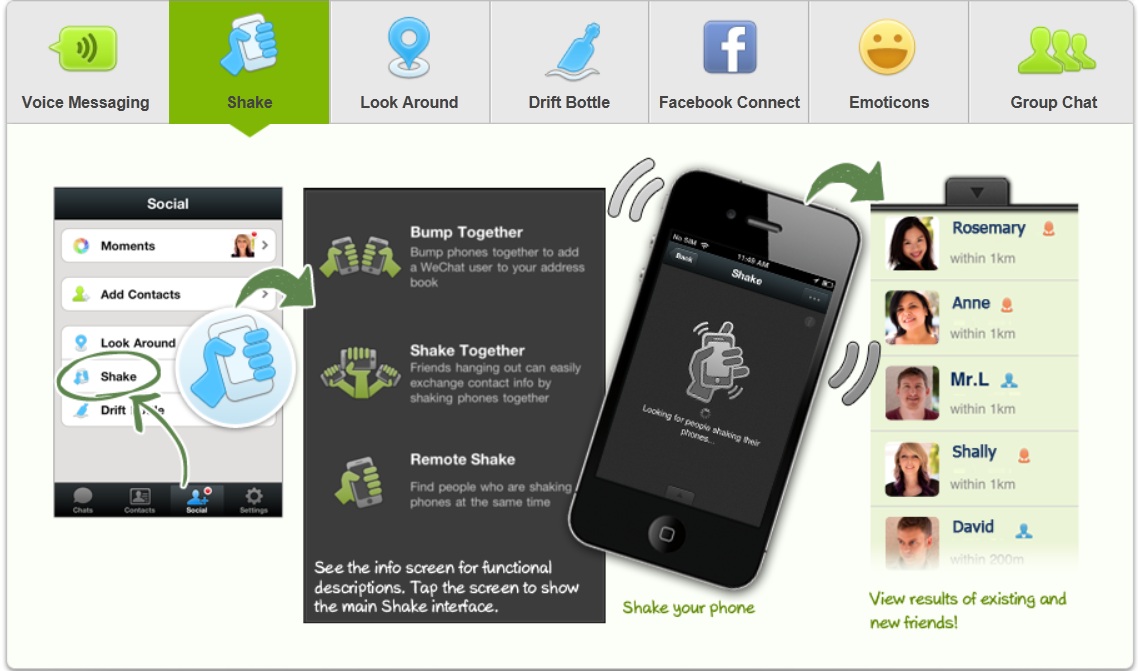Tencent ups the ante with WeChat, looking to build ecosystem
By A. Asohan September 11, 2012
- Officially available in Malaysia since June, WeChat claims about a million users
- Company hopes to build an ecosystem of third-party developers here
IT IS the world’s third largest Internet company after Google and Amazon, at least in terms of market capitalization – US$66.6 billion in July, ahead even of then tech-darling Facebook at US$62.2 billion. It’s no slouch with other numbers either, reporting revenues of US$3.19 billion for the first half of 2012 ended June 30, a 54.3% increase over the same period a year ago.
Yet Shenzen-based Tencent, formed in the first flush of dotcom craziness in 1998 but surviving and thriving all the way to a listing on the Hong Kong Stock Exchange in 2004, has never been able to shed that stigma of being a copycat company – like so many of its China peers, to be fair.
But the company has got itself a mobile-messaging and social media app which, while not wholly original, mixes and matches technologies and trends in its own unique way: Take the best of Instant Messaging, add equal parts of WhatsApp, a touch of Instagram and Twitter, and season it with some nifty features. Serve the biggest market in the world, and when it is properly settled, hit the rest of the world.
 Tencent, with 700 million users on its QQ instant messaging platform – noted technology blog TechRice writes that “just about every single Chinese Internet user has a QQ account” and that “for many, QQ is the Internet” – released WeChat in January, 2011.
Tencent, with 700 million users on its QQ instant messaging platform – noted technology blog TechRice writes that “just about every single Chinese Internet user has a QQ account” and that “for many, QQ is the Internet” – released WeChat in January, 2011.
The free app, originally WeiXin (micro-messages), provides instant voice and text messaging, has social network functions and some nice geo-location extras – you can locate any other WeChat user in your vicinity, and shake your phones at each other to establish a connection (click to enlarge illustration).
If personal safety is an issue or if you’re not that social an animal, you can always opt out, reassures Louis Song, country manager for Indonesia, Malaysia and Singapore in Tencent’s International Business Group.
“We’ve already got 200 million users worldwide, 90% of them within China,” he adds. “Mobile is the future.”
WeChat was first only available to users in China, but went international earlier this year. It is currently available in about 20 languages, including English and Bahasa Indonesia.
The app became officially available to Malaysians in June, and he claims that there are “nearly one million users” here, while declining to give exact figures, with about 60-70% of them communicating with the English version.
For celebrity-crazy Malaysians, WeChat already includes personalities such as Amber Chia, Daphne Iking and Hannah Tan in in stable, according to Song, using the app to communicate with their fans and friends. As with Twitter, you can ‘follow’ other users, and there are “official” (or verified) accounts as opposed to plain old personal accounts.
 With the world’s largest domestic market behind them, most China-based companies always think big and on a large scale, and Tencent is no different: WeChat is already available on just about every mobile platform you can think of – iPhone (pic), Android, Windows Phone and even Symbian, with the BlackBerry version launching soon.
With the world’s largest domestic market behind them, most China-based companies always think big and on a large scale, and Tencent is no different: WeChat is already available on just about every mobile platform you can think of – iPhone (pic), Android, Windows Phone and even Symbian, with the BlackBerry version launching soon.
“We went with a Windows Phone version first because we felt that it was a platform for the future, while the BlackBerry seemed to be disappearing,” says Song. “However, Indonesia is still a big market for the BlackBerry, and we wanted to commit to the market and users there.”
Building an ecosystem
Song was in Malaysia on a fact-finding mission, part of his homework to develop the business here, with an eye towards opening an office in the region in the next year or so. Apps such as WeChat and WhatsApp can pretty much become SMS-killers, but Song was seeking meetings with mobile service providers here.
“Cellular companies can leverage an app like ours by offering special data rates for users, and this is what we’ve done in Indonesia,” he adds.
The comparison with WhatsApp brought on a resigned shrug from Song. “They just developed an app, we’re building an ecosystem.”
Earlier this year, the company opened up its Application Programming Interface (API) in a bid to get third parties to develop add-on apps that can be integrated with WeChat: From customized emoticons to e-commerce, that strategy seems to have taken off.
“Every day in China, we get 4,000 applications seeking approval for apps,” Song claims, adding that the company is hoping to see add-ons developed specially for users in Malaysia.
“We are open to engaging with developers and developer communities here,” he says. “And while developing apps for Malaysian users, you’re also developing for a global marketplace of 200 million users and rising.”
For more information, developers can go to http://dev.wechatapp.com/ (English) or
http://open.weixin.qq.com/ (Mandarin).


